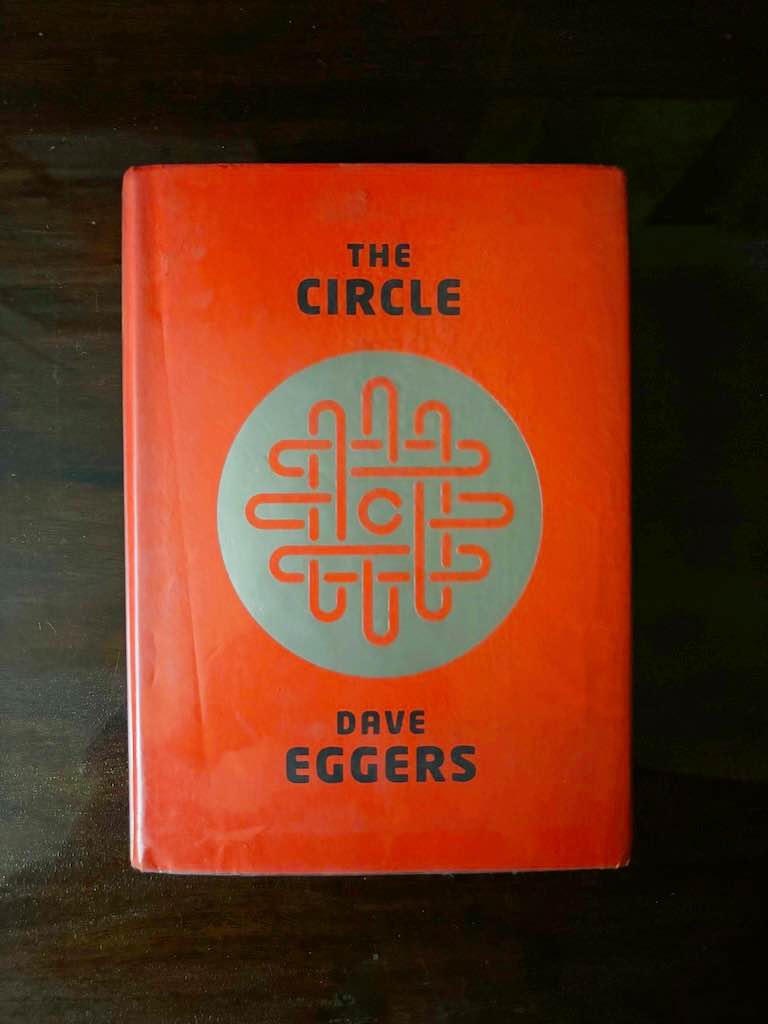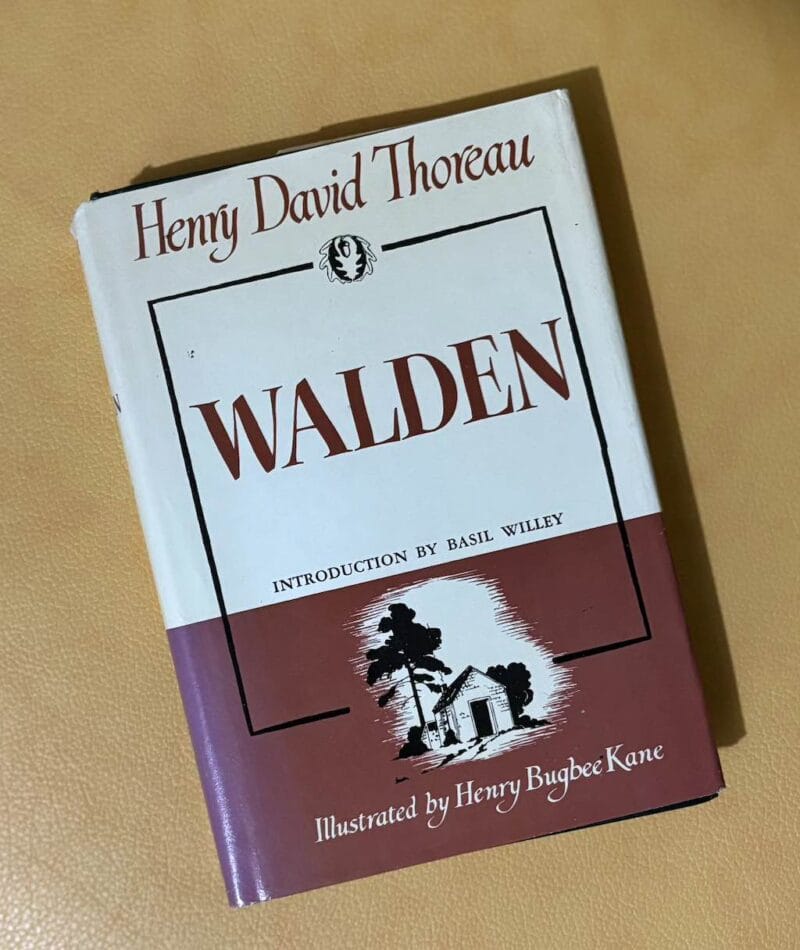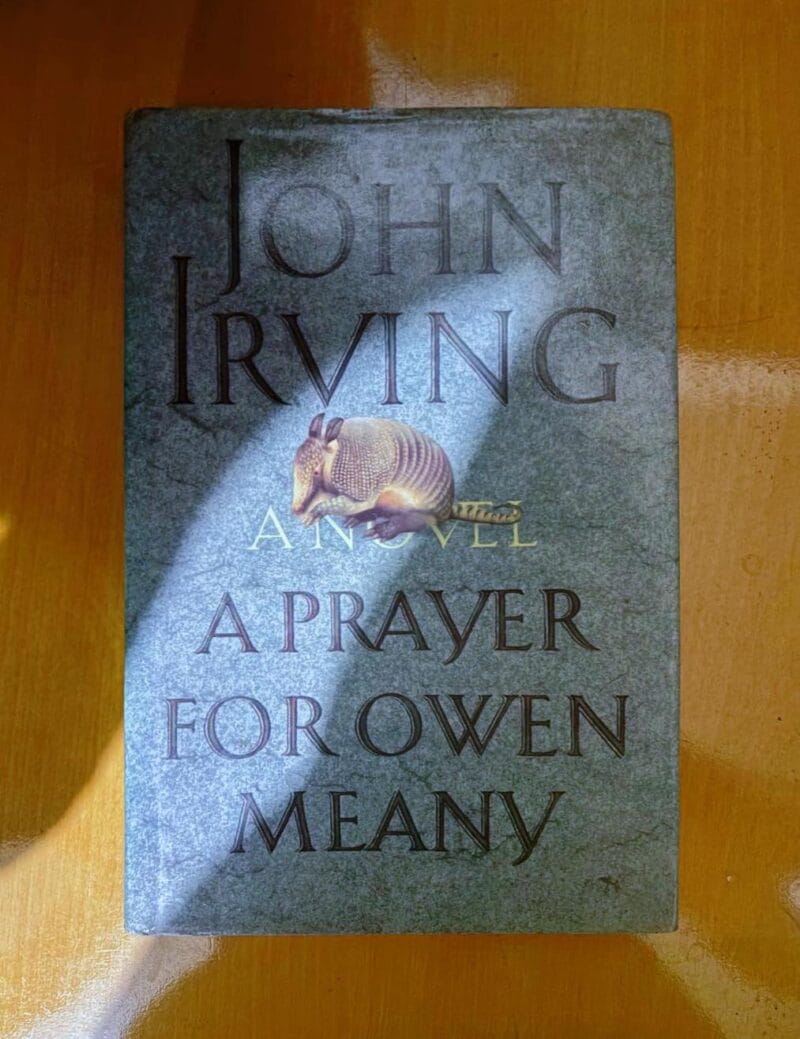My Reading Note
I came to The Circle late, after the conversations about it had cooled. Everyone had already decided what it meant. Reading it quietly, I kept bumping into something else. The warning arrives so gently you almost miss it.
A tech corporation has absorbed the functions of Google, Facebook, and Amazon into a single entity. Its campus offers employees everything: healthcare, recreation, social life, a sense of purpose. Its philosophy holds that secrets are lies, that privacy is theft, that total transparency represents the highest human good. This is the world Mae Holland enters when she secures a job at the Circle, and this is the world Dave Eggers constructs in his 2013 novel.
Reading The Circle alongside two earlier dystopian novels—Yevgeny Zamyatin’s We (1924) and Aldous Huxley’s Brave New World (1932)—clarifies something about Eggers’ work that single readings often miss. Most critical readings fit the novel into existing categories, such as Orwellian surveillance state or Huxleyan pleasure culture, without accounting for what makes it distinct. Unlike Winston Smith, who must be tortured into loving Big Brother, Mae Holland faces no such pressure. Unlike the citizens of Huxley’s World State, she isn’t chemically engineered for compliance. The Circle’s power moves through a more ordinary channel: the desire to be seen, validated, and included.
Eggers constructs his critique through what initially appears to be straightforward realist fiction. Yet the book’s formal choices amplify its warnings about technological absorption. The accumulating structure, the steady documentation of small concessions, the preference for incremental drift over dramatic turning points: these give the novel its peculiar power. It reads as reportage filed ahead of schedule.
I started seeing these aspects only after setting aside what other critics had decided. Most criticism wanted The Circle to be one thing or another (Orwellian, Huxleyan) and missed what Eggers was actually doing: showing how a person can surrender her privacy by saying yes until there’s nothing left to refuse.
Plot Summary
Mae Holland arrives at the Circle’s campus, having left a dead-end job at a utility company. Her friend Annie, already employed there, has secured her an interview. The campus offers a meticulously designed environment where work, recreation, and social life merge into a single continuous experience. Mae’s initial wonder at the campus amenities gradually gives way to something else. She participates in pilot programs, first wearing a health monitor, then agreeing to full transparency through a camera pinned to her clothing. Each concession feels voluntary, even beneficial. Each concession erases another boundary between herself and the corporation.
By the novel’s conclusion, Mae has become the Circle’s most visible spokesperson, advocating for mandatory full transparency across the population. Her transformation completes without a single moment of explicit rebellion. She never stops saying yes, and eventually there are no more questions to answer.
Every time I lend this book to a friend, it comes back with the same observation: they’d love to work at a place like the Circle. Free food, great healthcare, and a sense of mission. Then they pause and ask if that makes them part of the problem.
The Accumulation Structure
Eggers organizes the novel as a sequence of small concessions rather than a single decisive bargain. Mae first wears a health monitor that tracks her vital signs and flags potential issues. She continues wearing it because the data becomes part of how she understands her own body. Later, she agrees to limited camera broadcasts during specified hours. She can turn the camera off, but doing so means opting out of the community’s shared experience, and opting out carries social consequences. Eventually she wears it continuously, no longer distinguishing between her life and its broadcast.
This structure mirrors how actual technological adoption occurs. Features arrive as opt-in conveniences. Participation generates social expectations. The option to decline remains technically available but socially untenable. By the time anyone thinks to ask whether the system should exist at all, it has already become the background against which other choices are made.
I first noticed this pattern in how social media platforms change over time. Remember when logging out was a single, obvious button? Now it’s often buried behind nested menus. You can still leave, but they make you work for it.
Mae, Bailey, and Ty
Mae Holland serves as the novel’s central consciousness, but her role is less protagonist than specimen. Eggers denies her the kind of interiority that would let readers maintain distance. We cannot say “I would never do that” because we never see in her the kind of self-possession that would suggest she might act otherwise.
Eamon Bailey, the Circle’s charismatic co-founder, embodies a distinct danger. He is a benevolent authoritarian who genuinely believes in his mission. Bailey’s advocacy for transparency stems from conviction rather than strategic advantage. His sincerity makes him difficult to question, which renders him more dangerous than an openly self-interested executive would be.
Ty Gospodinov, the Circle’s reclusive co-founder, represents the engineer who recognizes too late what he has built. His attempt to destroy the system from within fails because the system no longer requires him. Ty’s irrelevance constitutes the novel’s darkest claim: technological systems, once launched, acquire momentum independent of their creators’ intentions.
Themes: Transparency and the Self
The Circle’s slogans—”Secrets are lies” and “Privacy is theft”—appear obviously sinister to readers who value private life. But Eggers pushes further than a simple defense of privacy. He shows that a person deprived of secrets becomes incapable of forming a self distinct from collective expectations. Mae has less to hide because there is less of herself to keep private. Her thoughts, once private possessions, become content to be broadcast.
This represents a more radical critique than conventional privacy arguments. Those arguments assume a pre-existing self that requires protection from exposure. Eggers suggests that the self requires secrecy to constitute itself in the first place. Without spaces exempt from visibility, no coherent individual can emerge. The Circle does not violate Mae’s privacy so much as prevent her from having a privacy to violate.
The distinction matters because it shifts the ground of objection. A privacy advocate might accept some transparency in exchange for security or convenience. The novel insists that transparency and selfhood are mutually exclusive. You cannot have both.
I remember reading this book shortly after a friend deleted her social media accounts. When I asked why, she said she was tired of performing herself. I didn’t understand at the time. Now I think I do.
What the Novel Does
The Circle functions as a description of the present disguised as a warning about the future. The technologies Eggers imagines, including wearable health monitors, ubiquitous cameras, social credit systems, and mandatory participation metrics, all existed in some form when the novel appeared in 2013. What did not yet exist was the cultural acceptance of these technologies as normal, even desirable.
This temporal displacement gives the novel its peculiar charge. Readers encounter scenes that feel familiar, even mundane, while registering that these scenes are supposed to represent a dystopian future. The gap between how the novel frames its world and how that world resembles our own creates an unease that operates below the level of argument. Eggers does not need to tell readers that surveillance is dangerous. He simply shows them their own lives reflected back with the volume turned up.
I opened my copy to a page I had marked and found a note I’d written to myself: “Check if this happened yet.” I had to look up the publication date to remember when I wrote it.
The Rise of the Cyberpunk Genre: Exploring Cautionary Tales of Technology in Fiction
These three posts from the archive offer useful companions to this article. The explainer on utopian and dystopian fiction provides a broader framework for understanding where Eggers’ novel sits in relation to the tradition. The survey of dystopian novels touches on some of the books mentioned here and gives readers a chance to explore further. The cyberpunk piece, though focused on a different subgenre, examines similar questions about technology, surveillance, and the erosion of privacy that The Circle raises.
Selected Passage with Analysis
Here’s the thing, and it’s painful to say this to you. But you’re not very interesting anymore. You sit at a desk twelve hours a day and you have nothing to show for it except for some numbers that won’t exist or be remembered in a week. You’re leaving no evidence that you lived. There’s no proof.
Pages 260-261, The Circle by Dave Eggers
Mercer speaks these words to Mae during their final encounter. He is not attacking her so much as describing what he sees: a person whose days are consumed by producing metrics that will disappear by the time the next metrics arrive. The passage matters because it states openly what the novel elsewhere shows through action. Mae has become someone who generates numbers for other people to look at.
The lines also clarify what is at stake in Mae's choices. Mercer believes that a life should leave something behind, some evidence that a person was here. The Circle offers Mae a different kind of evidence: daily validation, constant visibility, proof that she exists right now. But that proof expires. By the end of the week, it is gone. Mae trades the possibility of leaving something permanent for the certainty of being seen in the moment. Mercer thinks she is making a bad bargain. The novel leaves the reader to decide.
Editor's Note: This article was originally published on November 3, 2024. It was substantively revised on February 14, 2026 for depth, clarity, and updated research methodology to ensure the highest standard of literary analysis.
Further Reading
The Circle | Full Book Analysis [spoilers] by SparkNotes
When Privacy Is Theft by Margaret Atwood, The New York Review of Books
Brainwash, Condition, Repeat: Dave Eggers’s “The Circle” by Susannah Luthi, Los Angeles Review of Books
Dave Eggers’ The Circle: What the Internet Looks Like if You Don’t Understand It [spoilers] by Graeme McMillan, Wired




